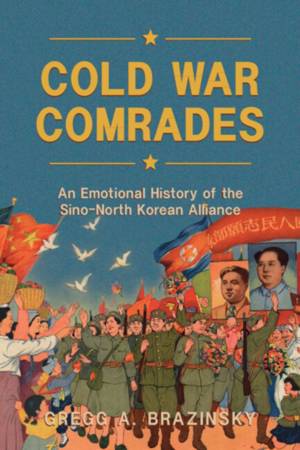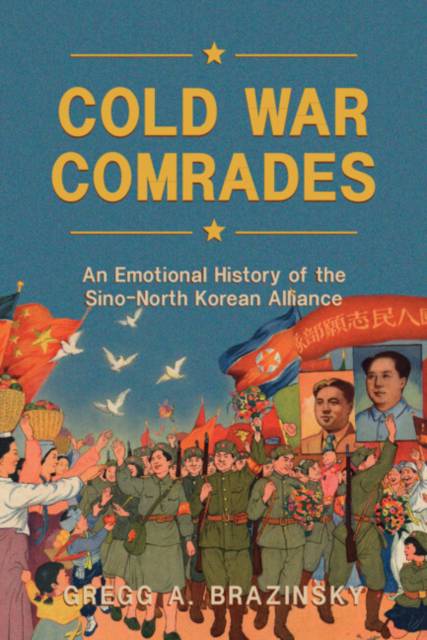
- Afhalen na 1 uur in een winkel met voorraad
- Gratis thuislevering in België vanaf € 30
- Ruim aanbod met 7 miljoen producten
- Afhalen na 1 uur in een winkel met voorraad
- Gratis thuislevering in België vanaf € 30
- Ruim aanbod met 7 miljoen producten
Zoeken
Cold War Comrades
An Emotional History of the Sino-North Korean Alliance
Gregg A Brazinsky
Hardcover | Engels
€ 55,95
+ 111 punten
Omschrijving
In this major new interpretation of Sino-North Korean relations, Gregg A. Brazinsky argues that neither the PRC nor the DPRK would have survived as socialist states without the ideal of Sino-North Korean friendship. Chinese and North Korean leaders encouraged mutual empathy and sentimental attachments between their citizens and then used these emotions to strengthen popular commitment to socialist state building. Drawing on an array of previously unexamined Chinese and North Korean sources, Brazinsky shows how mutual empathy helped to shape political, military, and cultural interactions between the two socialist allies. He explains why the unique relationship that Beijing and Pyongyang forged during the Korean War remained important throughout the Cold War and how it continues to influence the international relations of East Asia today.
Specificaties
Betrokkenen
- Auteur(s):
- Uitgeverij:
Inhoud
- Aantal bladzijden:
- 274
- Taal:
- Engels
Eigenschappen
- Productcode (EAN):
- 9781009633314
- Verschijningsdatum:
- 8/01/2026
- Uitvoering:
- Hardcover
- Formaat:
- Genaaid
- Afmetingen:
- 162 mm x 235 mm
- Gewicht:
- 530 g

Alleen bij Standaard Boekhandel
+ 111 punten op je klantenkaart van Standaard Boekhandel
Beoordelingen
We publiceren alleen reviews die voldoen aan de voorwaarden voor reviews. Bekijk onze voorwaarden voor reviews.








